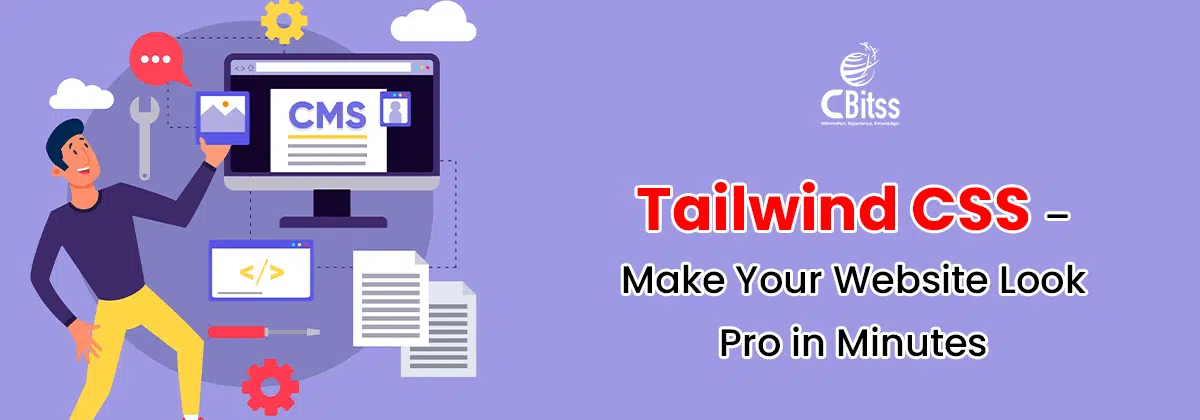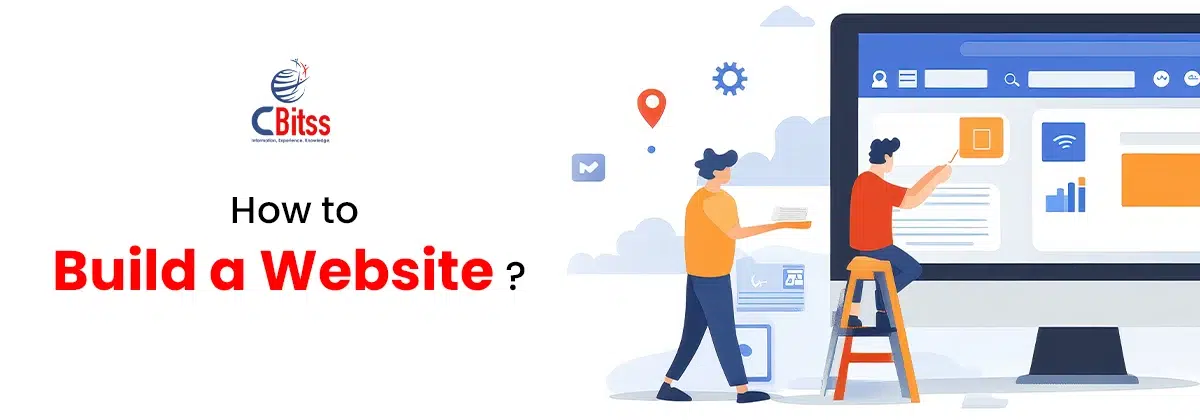Table of Contents
ToggleIntroduction
We talk about a huge number of websites every day. Unknowingly, we even visit a lot of these websites every day. But have you ever stopped and wondered where these websites come from? Or who is creating all these millions and millions of websites? I guess all of us can say in unison, NO!
However, we keep using these websites without giving them a major thought. But that’s the nature of our species. We don’t care what or who is creating something for our convenience, right? However, we just use these websites for our momentary gains, and that’s it. But building websites like these takes a lot of hard work and time, sometimes even months. Moreover, the people who develop these websites are known as Web Developers, and they are highly skilled and intelligent people. Therefore, they create websites and mobile apps for our convenience and hardly get any credit for it. Further, Today we are going to acknowledge them in this article by talking about what Python programming is and what Python programming fundamentals are. So, let us start with the topic without wasting any more time.
In recent years, the role of Python developers has expanded beyond websites to include data-driven solutions, AI-powered applications, and advanced automation. With evolving technologies and trends in mobile app development and AI impact on industries, learning Python has become even more crucial for building modern digital solutions.
What is Python programming?
Moreover, the profession of programming or web development is gaining traction all over the world. In India, there are hundreds of schools that are teaching programming to young students. It is the technology of the present as well as the future, as long as computers and the internet are in use, websites and apps will continue to be created by individuals. As far as Python programming goes, it is the art of writing and creating websites and webpages using the incredibly versatile Python programming language.
The Python language is found to be highly useful in many fields of work, including data analytics, web development, scientific computing, machine learning, and artificial intelligence. These are just a few examples, though; the use of Python as a language is even more extensive. Let us find out about Python programming fundamentals.
Python has also become a core technology in data-driven fields such as Python for data analysis, allowing businesses to interpret vast datasets efficiently. Moreover, understanding the differences in data science vs analytics helps aspiring developers choose the right Python career path.
What is Python Programming?
Python is a high-level, interpreted programming language that emphasizes code readability and simplicity. It is one of the most popular programming languages, as it is used by developers, data scientists, AI engineers, teachers, and students all over the world.
Python is widely used in various fields and applications, such as web development, data analysis and visualization, machine learning, artificial intelligence, scientific computing, data engineering, and much more.
Python is easy to learn and use, and it is one of the best languages to start your future-ready career in the world of programming.
In fact, Python programming popularity has skyrocketed due to its simplicity, powerful libraries, and cross-industry applications. From web development courses in Chandigarh to global AI research labs, Python is shaping the future of technology.
Things to Know Before Opt Python
Here are some facts to know before opt Python as your first or your next programming language:
Python is an easy and popular programming language to start with, as it doesn’t require any prior programming experience.
It supports multiple programming paradigms, such as procedural, object-oriented, and functional programming.
Python has one of the largest ecosystems of libraries and frameworks (Django, NumPy, Pandas, Flask, etc.).
It’s a high-demand language in the tech sector, especially for AI and Data Science.
Python is an open-source programming language that has an active and large community from all over the world.
With the rise of mobile app trends in Android and scalable web applications, Python also integrates seamlessly with Android-based development, making it a versatile choice for future-proof learning.
What are Python Programming Fundamentals?
Python is a highly complex language to learn and write code with, and therefore, Python programmers are high in demand in the market. The basic Python programming fundamentals are given below.
1. Variables and Data Types:
Data values are stored in multiple variables in the Python language. There are a large number of data types that are supported by Python. These include lists, dictionaries, libraries, tuples etc.
2. Basic Operations:
Python is intelligent enough that it allows mathematical calculations such as addition, subtraction and multiplication.
3. Control Structures:
- Conditional Statements: These structures are used for making decisions that are based on certain conditions, for example, ‘if’, ‘elif’ and ‘else’.
- Loops: A code might have to be repeated many times therefore, ‘while’ and ‘for’ functions act as loops for repeating the codes.
4. Functions:
- Conditional Statements: These structures are used for making decisions that are based on certain conditions, for example, ‘if’, ‘elif’ and ‘else’.
- Loops: A code might have to be repeated many times therefore, ‘while’ and ‘for’ functions act as loops for repeating the codes.
5. Lists, Tuples, and Dictionaries:
There is a humungous amount of data that needs to be stored during web development. Python provides an easy way to store this data in a decent and precise manner. Python provides ‘Lists’ which can store data in an order and that data is also mutable or changeable. ‘Tuples’ is a form of list only, except the data stored in Tuples is immutable meaning it cannot be changed. And lastly, ‘Dictionaries’ are a collection of data in an unordered, haphazard form in which the data is kept in key-value pair form.
Learn essential Python fundamentals from scratch and build strong coding foundations for real projects.
6. Input and Output:
Input and Output functions are extremely simple to use. Just use input () and output () functions to take user input as well as display output respectively.
7. Exception Handling:
In-built operations like else, expect and try can be used to handle expectations elegantly.
8. Modules and Libraries:
The in-built libraries that are present in the Python language are highly extensive. Also, Python supports the import of external libraries which gives the developer an additional edge over his/her peers.
9. File Handling:
You can create both read-from and write-to-type files using Python. You just need to learn the concepts and formulas and you’re good to go.
Discover Python basics step-by-step and create your first interactive coding programs confidently.
10. Object-Oriented Programming (OOP):
The OOP model is a famous programming model that encapsulates real-world entities and their relationships in a software form. The Python programming language supports all the OOP concepts such as polymorphism, inheritance, etc.
11. Indentation:
Unlike other languages, Python uses indentation instead of brackets to define blocks of code. Proper indentation is crucial and helps in maintaining readable code.
12. List Comprehensions:
This is a simple way of keeping your code in a list format.
13. Lambda Functions:
Moreover, these functions are anonymous and can be used in several other operations.
14. Modules and Packages:
You must make sure to learn how to categorize your written code into different modules and package forms so that the management of codes becomes easier.
Additionally, modern Python development also involves working with APIs, cloud services, and AI-based tools that enhance these fundamentals and prepare developers for real-world projects.
Popular Programming Language Merits: Why Python?
Here are a few reasons why Python stands out:
| Feature | Python’s Strength |
| Readability | Clean syntax |
| Cross-platform compatibility | Runs anywhere |
| Community Support | Vast and helpful |
| Integration | Works with Java, C, C++, etc. |
| Career Opportunities | High demand |
Python is a popular programming language with many merits, making it perfect for beginners and professionals alike.
As industries evolve with AI-driven solutions, the demand for Python developers continues to rise, making it essential for roles in AI, analytics, and web and mobile application development.
Conclusion
In conclusion, Python is a programming language that is highly versatile and can be used by many programmers across the board. It can be used in multiple fields as discussed above. Overall, Python is a must-learn language if you want to become an elite programmer. If you need any assistance or want to learn Python completely, we at CBitss have the best Python Programming Course in Chandigarh.
Whether you aim to master Python for data analysis, dive into AI-powered innovation, or explore modern web development courses in Chandigarh, learning Python opens doors to endless opportunities. If you need any assistance or want to learn Python completely, we at CBitss offer the best Python Programming Course in Chandigarh, designed to match current industry demands.
FAQs
Is this course available online?
Yes, of course, all our courses are available online.
Will I be able to join the course without a degree in engineering?
Certainly, these are certification courses and do not require a college degree.
Is this course good enough for my career?
Further, if you aspire to become a programmer, this course can do wonders for your career.
What else can I do after doing this course?
Although there is a plethora of job opportunities after you have our certification.
Is there an evening batch available?
Yes, of course, we have multiple batch options that you can choose from.

J. Julia Kamei is a professional content writer with 4+ years’ experience creating impactful content for clients in the USA, India, Canada, the UK, and Europe. An M.A. History graduate, she specializes in immigration, business, IT, digital marketing, AI, and Data Science. She also mentors students for international education and research.







